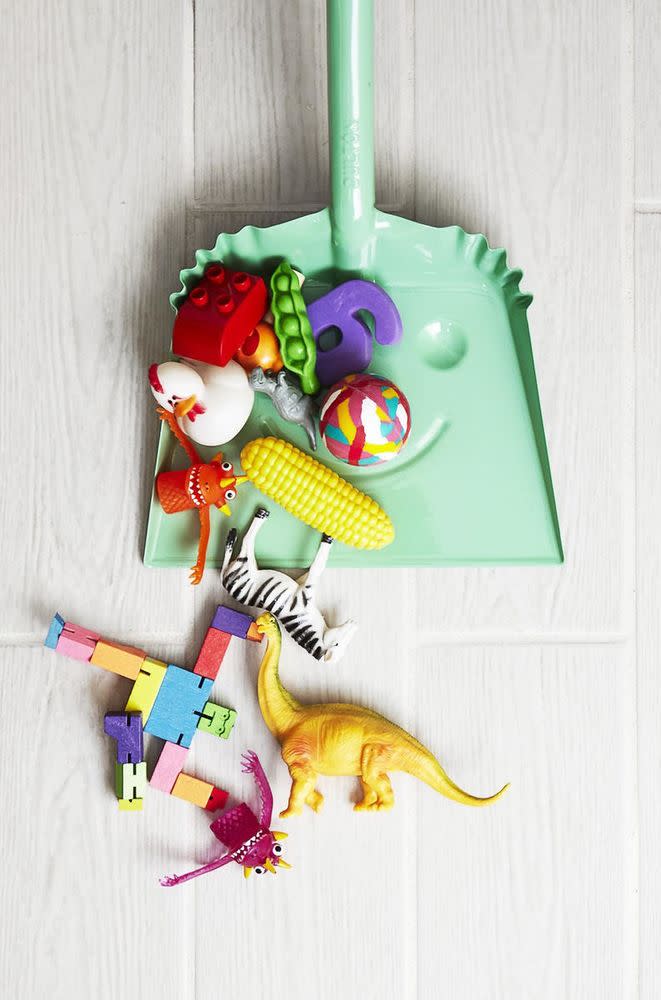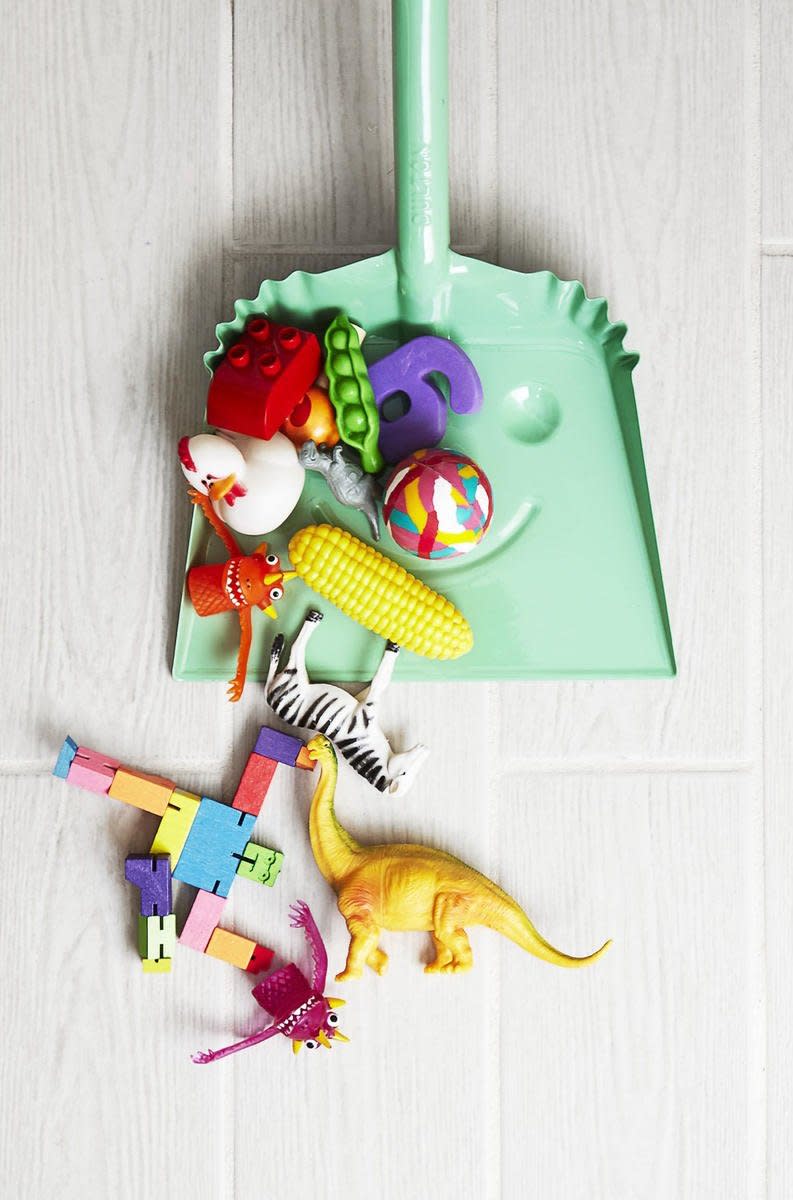5 Ways to Make Spring Cleaning Easier With Kids

If you're feeling overwhelmed when it comes to spring cleaning (where to start?!), we've got five simple strategies to make the de-cluttering process a little easier, including tips on how to get the kids to help out.
1. Start small.
Your family has only so much time and energy, so don’t try to organize the whole house in a day. Target the areas where you’ll get the biggest payoff (the toy bin, an overflowing clothes closet) and give your kids clearly defined tasks (put toys they don’t want in one bin, too-small clothing in another) to keep everyone on track. You’ll limit meltdowns and the whole crew will end up feeling more accomplished, says Kate Varness of Green Light Organizing and Coaching in Peoria, Illinois. And if it doesn’t all get done, that’s okay! Stay positive, praise the kids for helping, and work it in monthly going forward so clutter doesn’t build up.
RELATED: Clean Your House Faster!
2. Give everything a home.
You’re still going to have to remind them to pick up, but having a place for everything means that kids know where toys and belongings go when you ask them to clean up, says Amanda Titchenal of Organize with Amanda in Orange County, California. That way, they can pick up without your supervision. Involve your child when deciding where her toys should be stored, then label the shelves, bins, or baskets with pictures or words (depending on her age). It’s also a helpful reminder when someone else is watching your kids. They can’t pull a fast one when, say, Grandma’s in charge, and it keeps their routine consistent, which is key to developing long-term tidy habits.
3. Do good while you’re at it.
When kids pass on their belongings to others in need, decluttering becomes an exercise in kindness, says Nadine Levy of Management 180 in Calabasas, California. Explain why giving to others is important, emphasizing that some people don’t have basic essentials or toys of their own. Work together to research where to donate specific items, like taking old towels and blankets to an animal shelter or toys to The Salvation Army or Goodwill, says Tonia Tomlin of Sorted Out in Plano, Texas. If you can, bring donations directly to the person or organization that will be using it. The more connection you and your children have to your stuff’s next owner, the easier it is to let it go.
4. Make it fun!
When the job becomes a game, it goes faster and feels less like work! Quick bursts of tidying up means you don’t have hours of heavy organizing later. So give it a little life: Crank up the stereo or set a timer to race against, suggests Levy. You can also reward your kids with points for how many items they discard, donate, or put away. Then, when they reach a certain amount, let them cash them in for a small prize. Anything you can do to motivate the kids will make you all happy (we’re not above using treats to lure them in!).
RELATED: Home Organization: Organizing Toys
5. Acquire less.
Gifts are great, but try to shift everyone’s attitude away from getting and toward doing. Encourage your kids to ask for experiences, like a trip to a museum or dinner out with Grandma, instead of tangible presents, says Varness. The memories made will be priceless—and far better than a toy they could outgrow in a few months. Plus, the less you bring in, the less you’ll have to move out!


